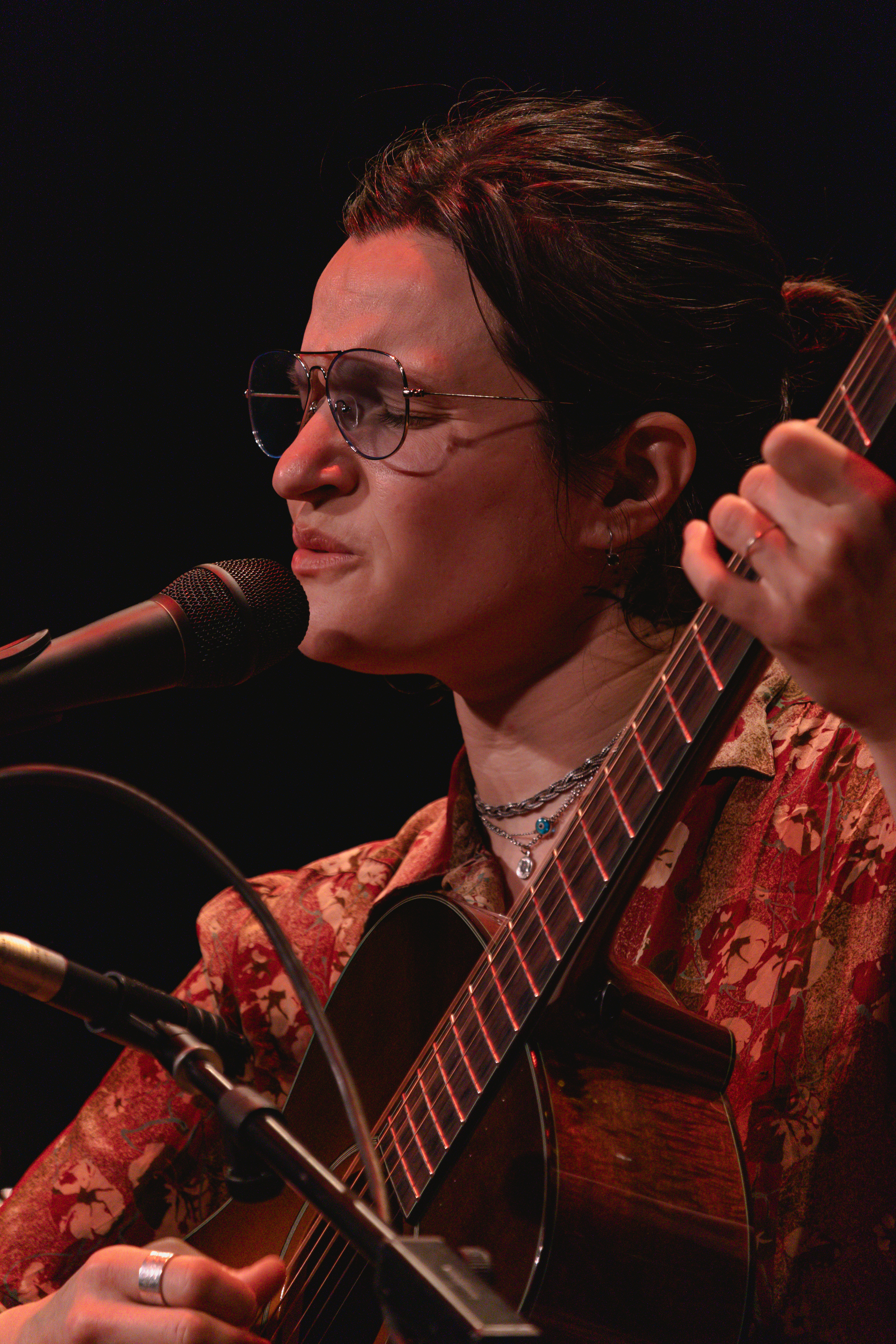ADRIANNE LENKER @ SHUBERT THEATRE 11/12
Photography by Matt Lutkins
Review by Kyra Matteo
Adrianne Lenker grew up in a Christian cult and almost died at age five when a train track nail fell from an overhanging treehouse and impaled her skull. Yet, in her music, she chooses a different path to emotion. Rather than delving into her extraordinary trauma, Lenker prefers to depict the quiet moments of humanity: time spent with friends and lovers, relationships with nature, and the complexities of family. At the Boch Center’s Shubert Theatre on Tuesday night, she demonstrated why she’s become one of indie music’s most compelling storytellers—not through uniquely shocking tales, but through an examination of the shared hardships and tender moments that make us all human.
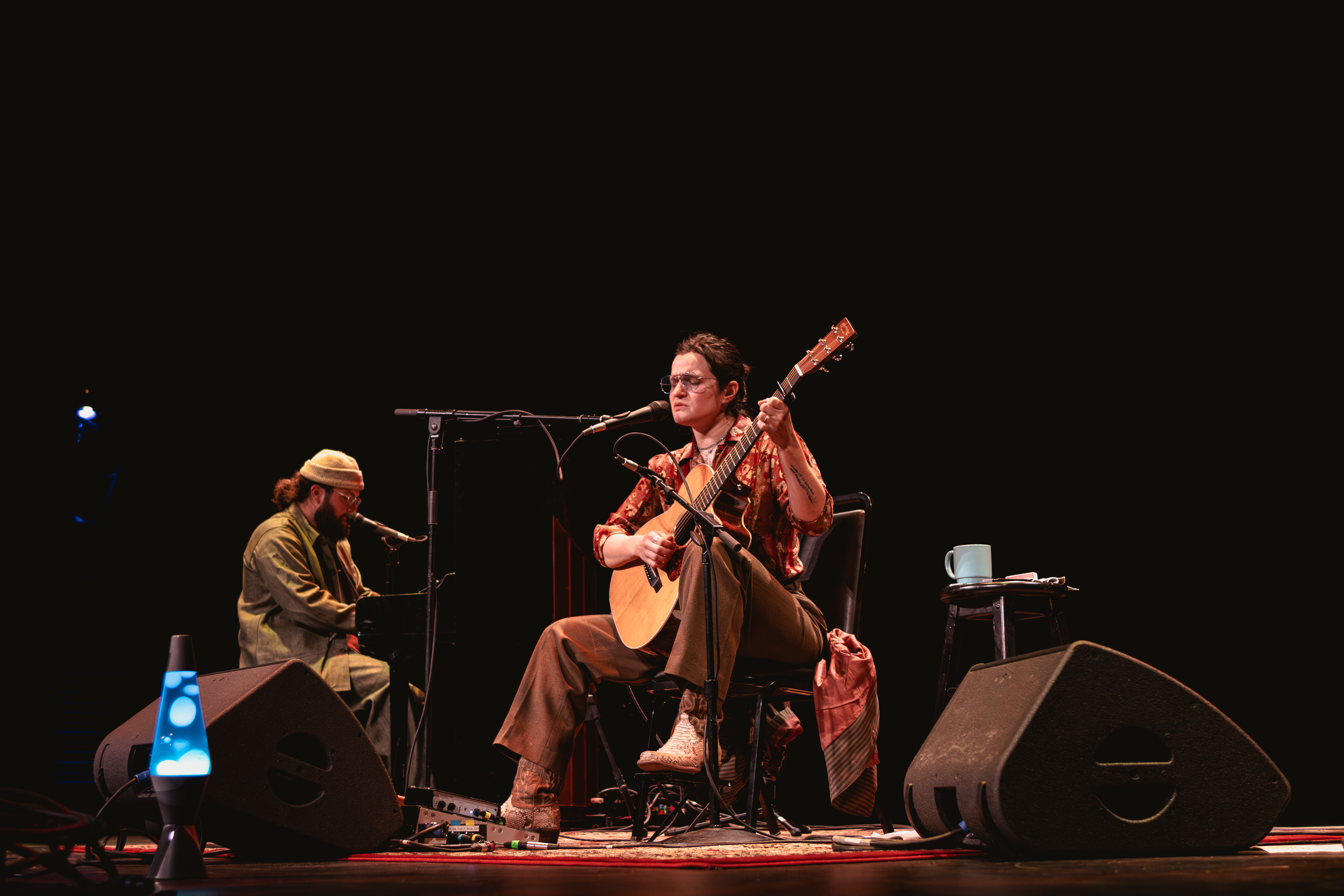
The historic Shubert Theatre was the ideal venue for Lenker’s soft indie-folk music. With assigned seating and no mosh pit in sight, it was clear the audience consisted of people who came to listen, not jump and sing along. At times, the room was so silent that you could hear the creaking of old seats and even Lenker’s soft gulp as she sipped her water (a moment she herself commented on). In this hushed, intimate space, Lenker’s vulnerable lyrics were right at home.
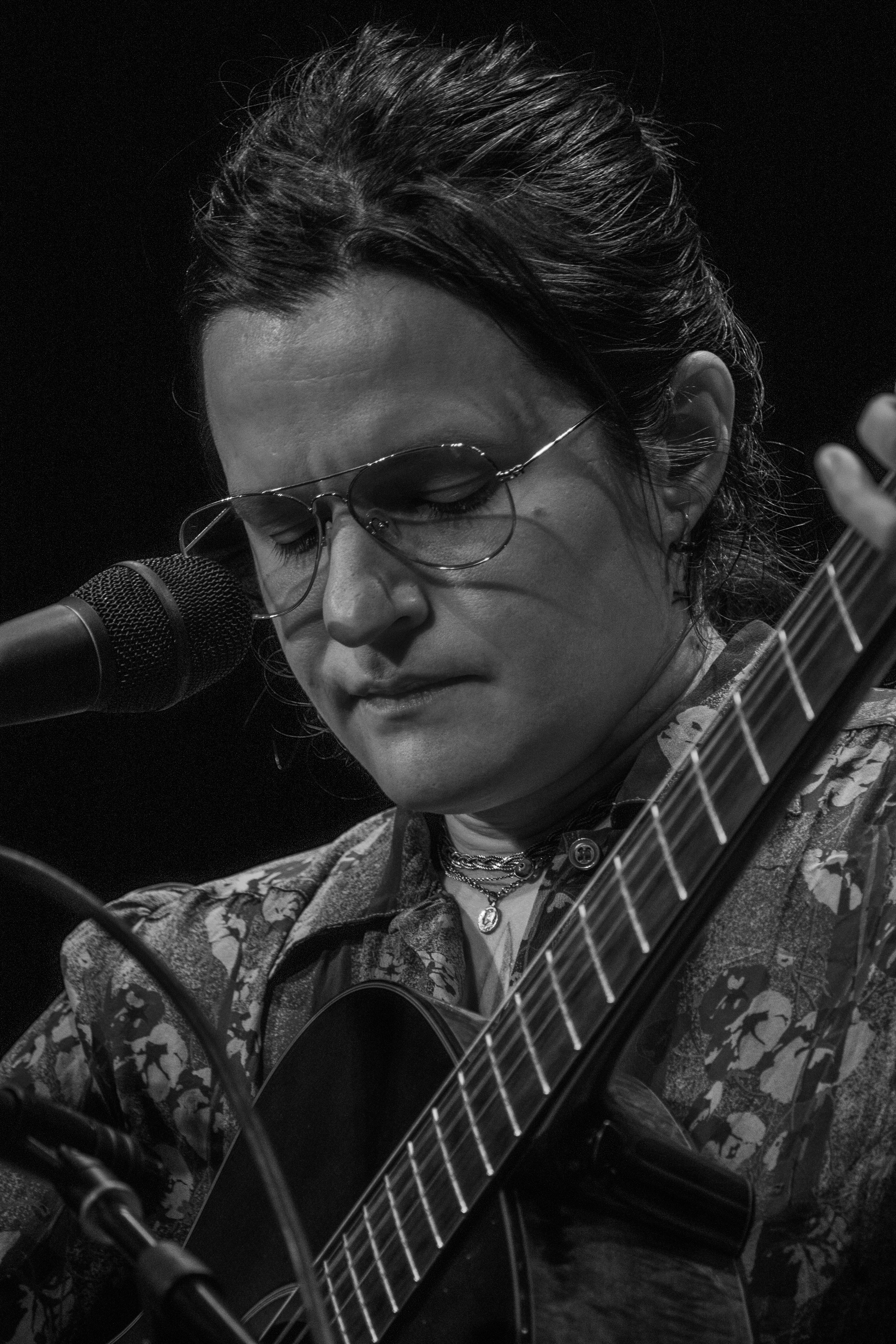
Lenker is best known as the vocalist and guitarist for Big Thief, the band she co-founded with Buck Meek in 2015. While Big Thief has achieved widespread acclaim, Lenker’s solo career has also flourished. Building on the success of her 2020 album “songs and instrumentals,” she released “Bright Future” earlier this year. Although she’s currently touring “Bright Future,” her setlist on Tuesday night (her first of two performances in Boston this week) included only four songs from the new album, with the rest filled by Big Thief favorites, covers of various artists, and tracks from her earlier solo work.
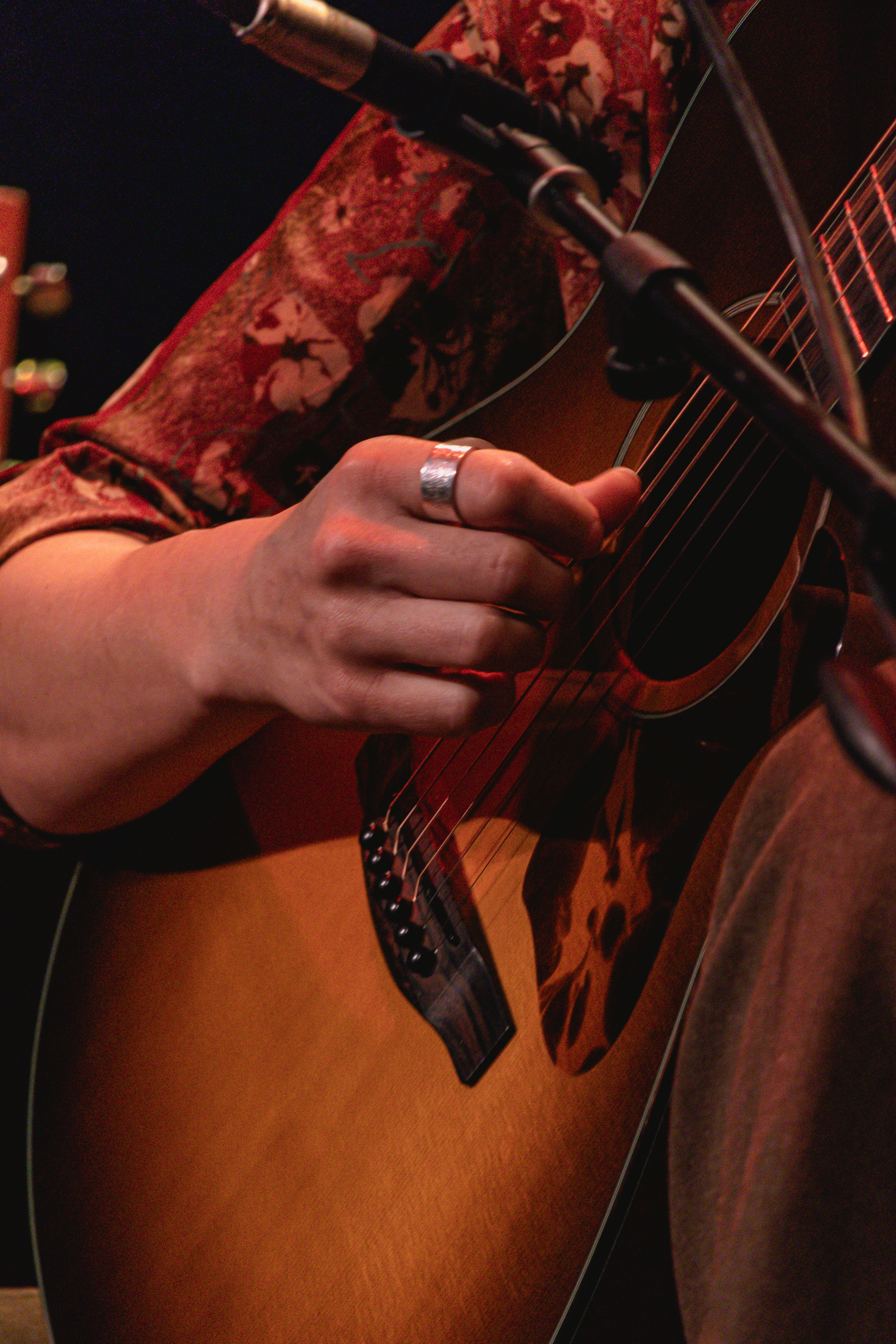
In the theater, Lenker shared deeply personal stories through her songs. She opened her set with “Real House,” a song that Lenker has described as an autobiographical montage of pivotal moments in her childhood. The song contains the inevitable sorrows of early life — the loss of a family pet and strained familial relationships. “Now 31, and I don’t feel strong, and your love is all I want,” Lenker sang of her mother, her raw vulnerability inviting the audience to connect through their own shared experiences.
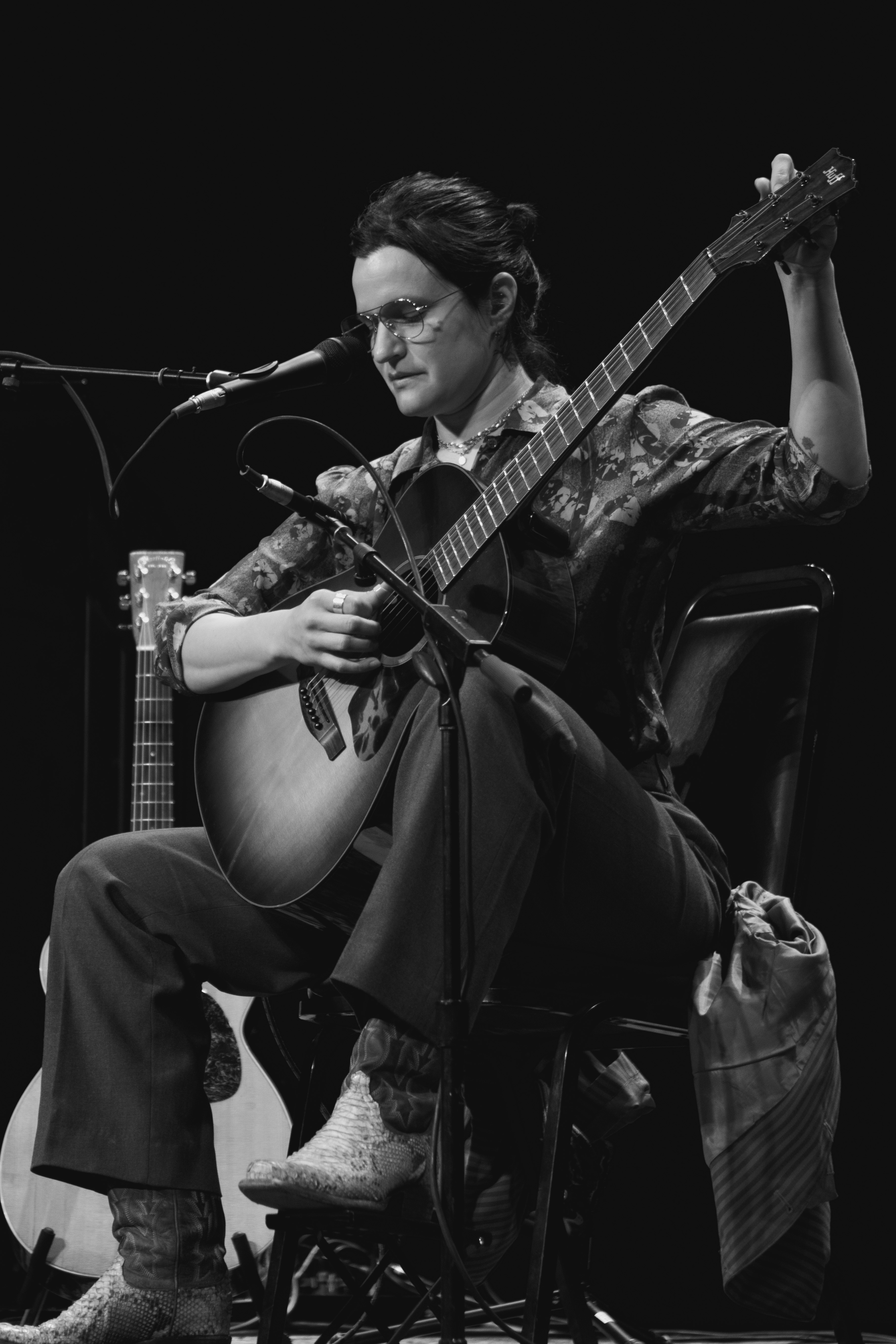
Lenker is one of those rare artists who sound the same live as they do on their recordings, a testament to her vocal strength and skillful compositions. On “No Machine,” her supporting band strummed their lips as Lenker sang, “I don’t know what I’d do, don’t know what I’d do without you.” She effortlessly hit high notes and harmonized with her backing band so seamlessly that her voice took on an ethereal quality.
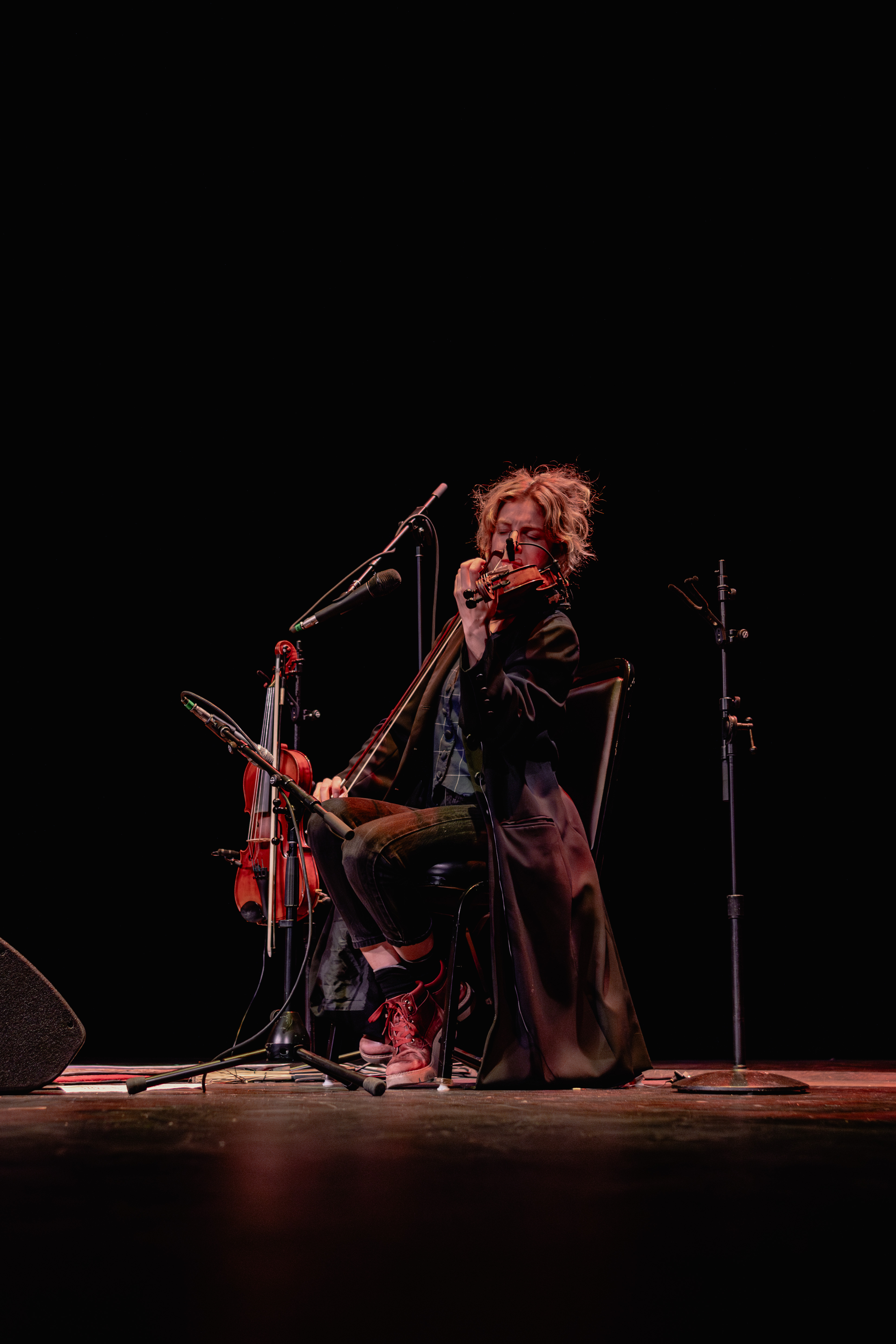
Lenker’s vocals were not the only part of the night that stunned me — the intricacy and ease of her guitar playing were equally mesmerizing. Trained at Boston’s Berklee School of Music, her rigorous education and years of experience were evident in her performance. Each song Lenker performed featured complex, swiftly finger-picked patterns across a variety of tunings, yet she played with an effortless grace. Even when placing her foot on a step stool to prop her guitar in a suitable position on her leg, it is clear that Lenker takes her craft seriously.
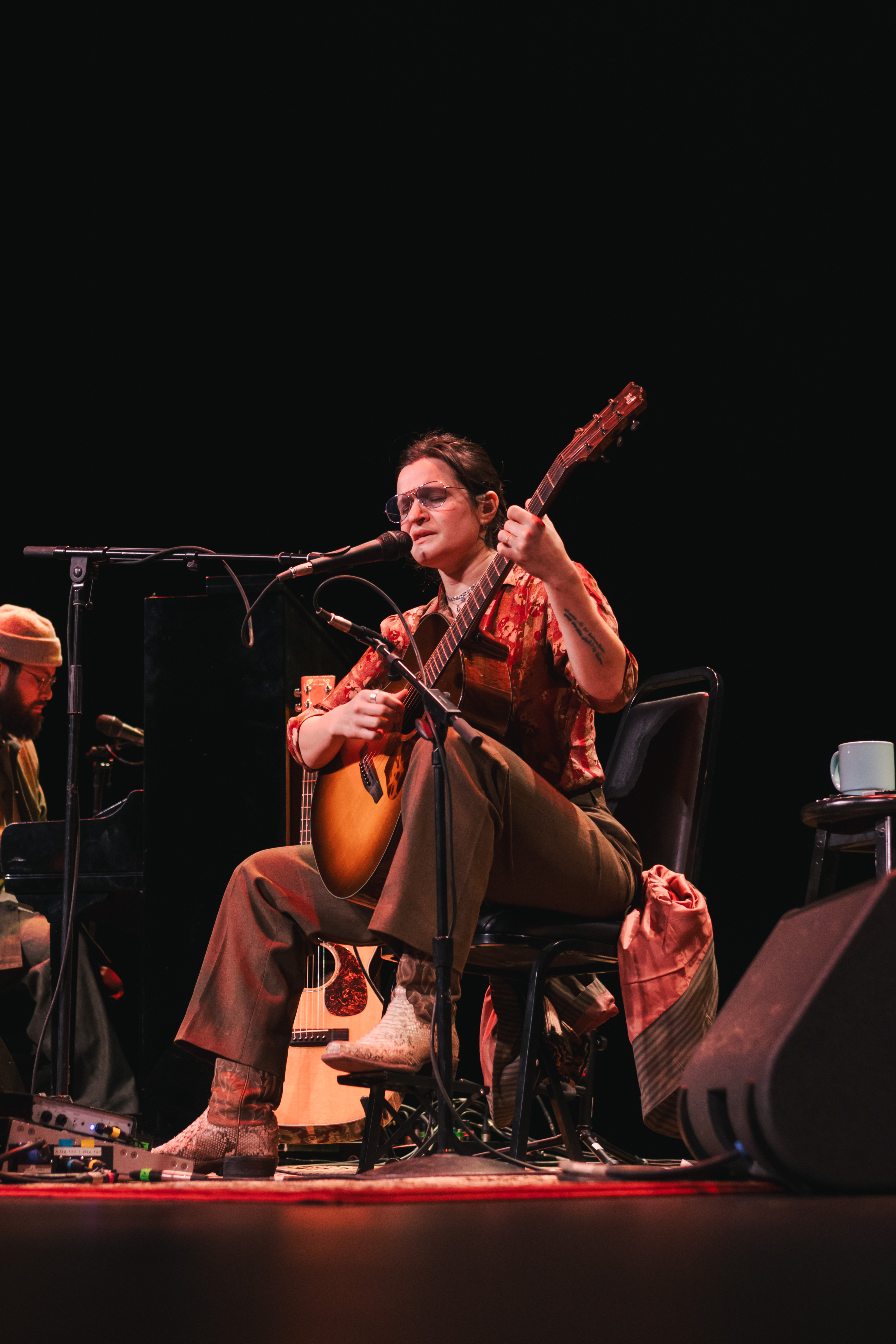
Lenker’s quiet charisma emerged as she addressed the audience in her usual soft-spoken manner, pausing between phrases as if choosing each word carefully. Her personality also shone through on stage as she entertained the audience with anecdotes of her time spent living in Boston, reminiscing about days spent riding the ferry while playing chess and eating candy and recalling her life in Harvard Square experimenting with nude charcoal drawings. Lenker grew absorbed in these memories on stage as if she were confiding in a friend rather than an audience of 1,500. Her stories reveal a person who cherishes life’s quiet moments, making clear why her music so reliably captures the beauty of everyday life.
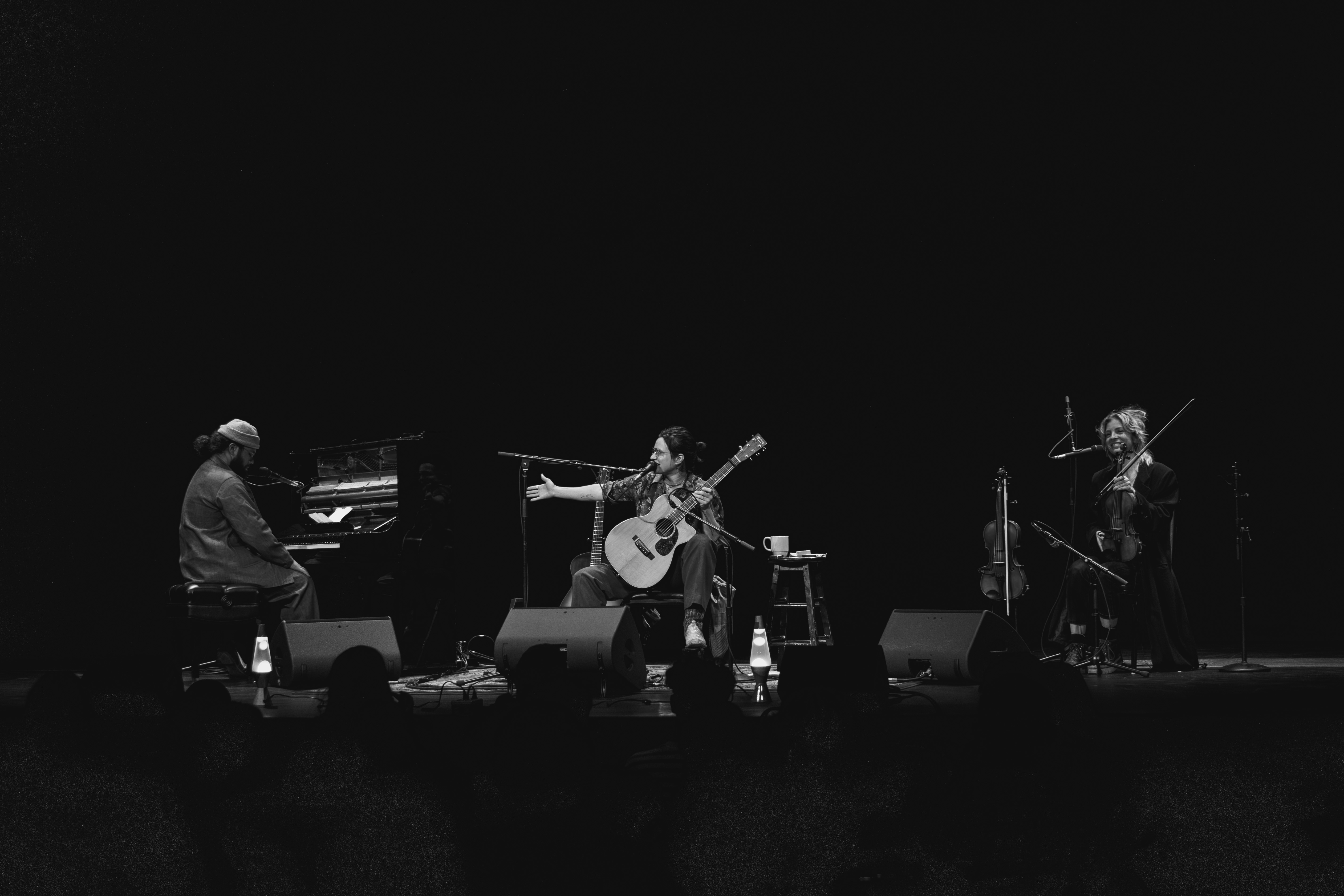
In one particularly poignant moment, Lenker tried to express her feelings about the current state of the country, lamenting that she couldn’t communicate as effectively through speech as she does through song. Instead, she opted for a long pause, a moment of shared silence, before beginning “Donut Seam.” The song’s haunting opening lines —“this whole world is dying, don’t it seem like a good time for swimming before all the water disappears?”— carried extra weight in the wake of last week’s devastating election results. What Lenker couldn’t convey in words, she channeled into her music, creating a powerful moment of mourning and human connection amidst the United States’ increasingly troubled political and environmental landscape.
